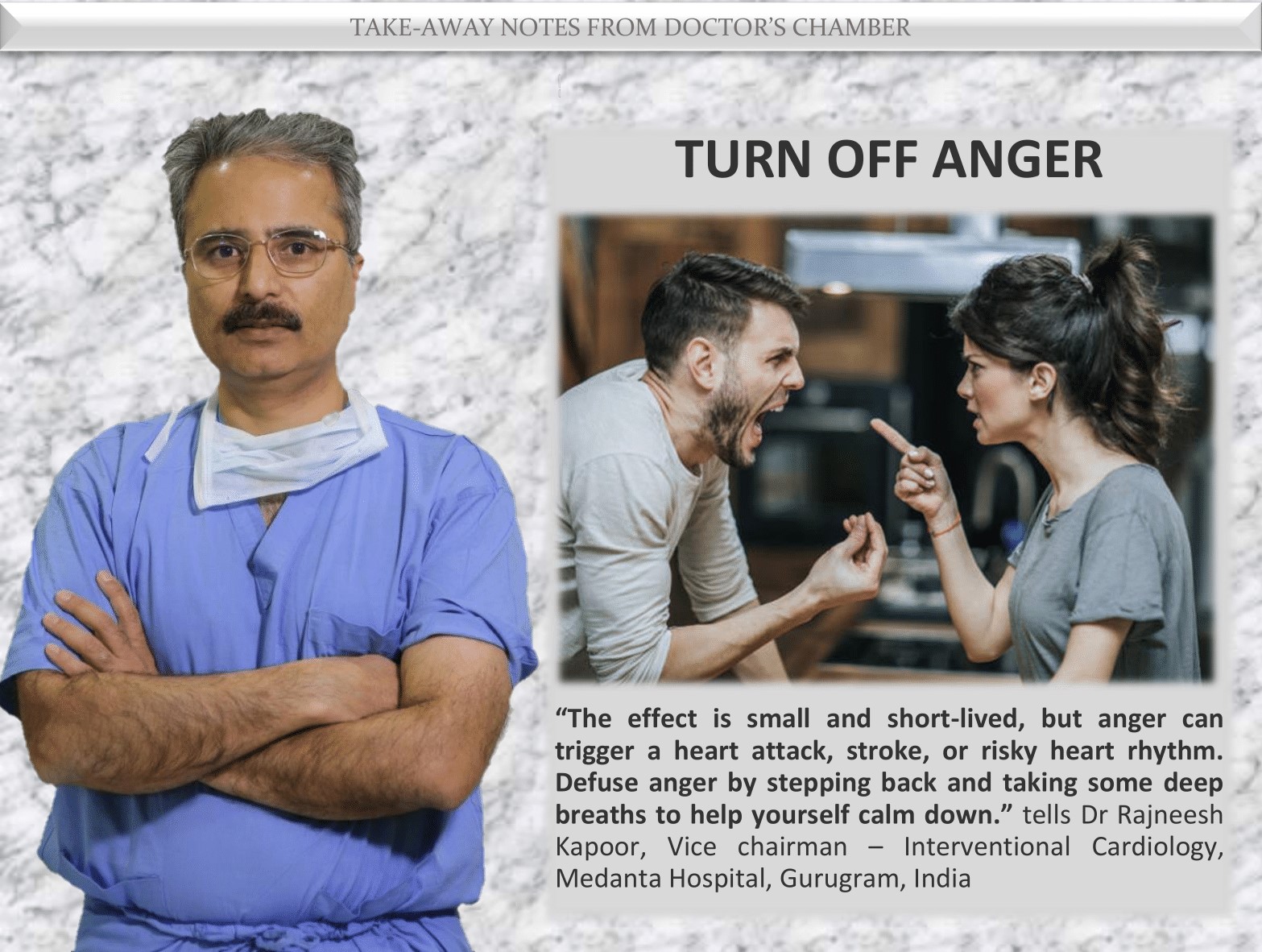
Heart Attack happens when a blockage in a person’s coronary artery causes part of their heart muscle to be starved of blood and oxygen.
It requires immediate medical attention - early treatment to get the blood flowing to the damaged part of a person’s heart muscle again can save a person’s life.
It is well understood that certain lifestyle decisions can hike a person’s risk of developing the deadly condition. One study reveals a certain emotional state can dramatically increase the risk.
According to research published in the European Heart Journal Acute Cardiovascular Care, the risk of a heart attack is 8.5 times higher in the two hours following a burst of intense anger.
In the study, 'anger' was qualified as five and above on a one to seven scale, referring to 'very angry, body tense, clenching fists or teeth, ready to burst', up to 'enraged, out of control, throwing objects'. Anger below this level was not associated with increased risk.
Our findings confirm what has been suggested in prior studies and anecdotal evidence, even in films - that episodes of intense anger can act as a trigger for a heart attack," said lead author Dr Thomas Buckley, Sydney Nursing School, University of Sydney, and researcher at Royal North Shore Hospital.”
Dr Buckley added: "The data shows that the higher risk of a heart attack isn't necessarily just while you're angry - it lasts for two hours after the outburst.”
In the study, 'anger' was qualified as five and above on a one to seven scale, referring to 'very angry, body tense, clenching fists or teeth, ready to burst', up to 'enraged, out of control, throwing objects'. Anger below this level was not associated with increased risk.
As Dr Buckley explained: “The triggers for these burst of intense anger were associated with arguments with family members (29 per cent), argument with others (42 per cent), work anger (14 per cent) and driving anger (14 per cent).
"The data also revealed that episodes of anxiety can also make you more likely to have heart attack.
"High levels of anxiety were associated with a 9.5 fold increased risk of triggering a heart attack in the two hours after the anxiety episode.
"Increased risk following intense anger or anxiety is most likely due to increased heart rate, blood pressure, tightening of blood vessels and increased clotting, all associated with triggering heart attacks.”
Our message to people is they need to be aware that a burst of severe anger or anxiety could lead to a coronary event, so consider preventative strategies where possible.”
Eating a certain a diet can help to stave off the risk of a heart too. Here are five heart-friendly foods.
What are the symptoms of a heart attack?
According to the Cardiologist Dr Rajneesh Kapoor, symptoms of a heart attack include:
Chest pain – a sensation of pressure, tightness or squeezing in the centre of your chest
Pain in other parts of the body – it can feel as if the pain is travelling from the chest to the arms (usually the left arm is affected, but it can affect both arms), jaw, neck, back and abdomen
Share This News